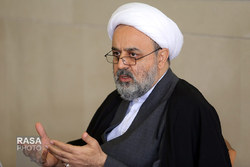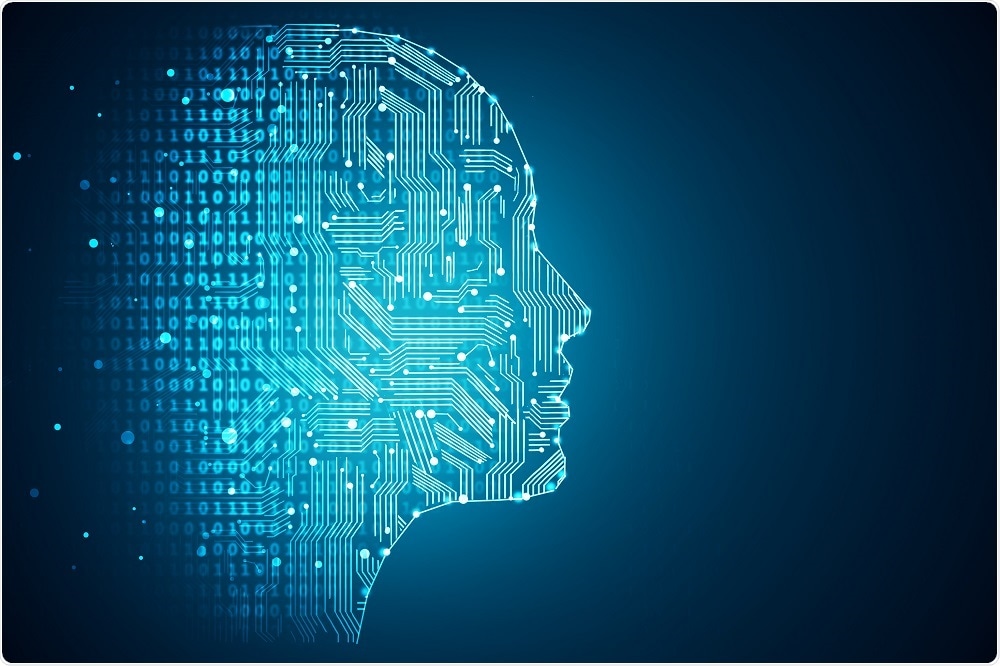 Nowadays, artificial intelligence is able to play an effective part in governing the countries and the proper and wise management of this technology can bolster the government.
Nowadays, artificial intelligence is able to play an effective part in governing the countries and the proper and wise management of this technology can bolster the government. RNA - The first introductory session held prior to the Seminar on the Intelligence and Humanities was held by Noor Center of Islamic Sciences’ Department of Computer Research and was participated by some seminary and academic professors and students on the 30th anniversary of the establishment of the said Centre.
Hujjat al-Islam, the deputy chief of Justice and the chairman of the Center of Islamic Sciences’ Department of Computer Research, Hamid Shahriari, in this session, pointing to the verse no. 78 of Nahl Sura, “وَاللَّهُ أَخْرَجَكُمْ مِنْ بُطُونِ أُمَّهَاتِكُمْ لَا تَعْلَمُونَ شَيْئًا وَجَعَلَ لَكُمُ السَّمْعَ وَالْأَبْصَارَ ...” (Allah has brought you forth from the bellies of your mothers while you did not know anything. He made for you hearing, eyesight …) said, “contrary to the opinion of some philosophers, the man owns no knowledge or information upon his/her birth, and gradually he acquires knowledge; and it is similarly true about smart machines/robots, i.e., a machine/robot has no information/knowledge on itself upon its production and it receives information through programming”.

He then opened the topic of artificial intelligence and added, “currently, case sear study has led to the development of a new psychological method and it has much helped data classification.
This seminary and university professor, discussing the topic of “the role of the artificial intelligence and information technology (IT) in the world economy” stated, from 2001, among the companies active in the field of IT, Microsoft was only regarded as the generator of capital and wealthy. In the said era, many wealthy and capital-owning companies weren’t information organisations, however, today the top 5 companies of the world, are IT companies”.
Opening the topic of artificial intelligence and humanities, he added that today, artificial intelligence can play an effective part for the governments and the proper and wise management of this technology can strengthen the position of the system.
The member of National Center for Cyberspace, then, acknowledged, “the intelligence owned by machines, can have the functions similar to those of the man, for instance “their understanding of the environmental conditions”, “recognising human content”, “understanding the man’s actions and emotions”, “learning based on the past experiences and training”, “planning, decision-making and leadership commensurate with the existing conditions”, “behaviour proper in the existing conditions”, “behaviour fitting an understanding”, “recognition and thinking done by machines”, “simulation of the thinking procedures”, “finding and solving problems along with providing explanations”, “individual and societal interactions” and “self-awareness and self-recognition in interaction with others” are some instances in this regard.
In the second part of his speech, raising five questions on artificial intelligence and humanities, he pointed out, “in this special session, I raise these questions and leave the discussion and exchanging views to the seminary and university students and the students of the field of artificial intelligence and humanities and I hope you reach good results.”
The chairman of Noor Center of Islamic Sciences’ Department of Computer Research added, “the first question is that “whether machine and human can substitute for each other?” answering this question, he presented the question of identity similarity and described the discussion on this issue related to fields of philosophy and philosophy of mind, and then said, “the second question is on the physical and sensual characteristics and parts related to the field of science of anthropology”.
Presenting the third question, “whether can the machine have the understanding similar to that of the man?”, he said, “imagination (on three levels of palpability of the face of the thing before the self, the palpability of the face of the thing before the memory and the palpability of the face of the thing before the confronting memory), confirmation (confirming the palpability of something for something else on two other levels), mind (move from the origin to the target on two other similar levels) and reasoning (making categorical or conditional syllogism on two other levels) are some issues that should be considered answering this question.
Hujjat al-Islam Shahriari, explaining the issue of artificial intelligence and humanities, raised the question “whether the machine can conduct the human affairs?” and then stated, “an example that at this point can be pointed to are those robots conducting only some human affairs”.
“The other question can be raised here is that “whether can we give the power of interpretation and reasoning to machines through detailed analysis of man’s method of interpretation?” There will be some challenges before us answering these question, including “the formalization of the fundamental and intuitive concepts”, “modelling the daily interpretations”, “intuitiveness of many human reasoning”, “plurality of the imaginations and affirmations that a common man should conduct an ontological analysis/engineering on them”, and it should also be considered that many human sciences and knowledge can’t be put forth using propositions and words”, he added.
Hujjat al-Islam Shahriari, continuing his speech, raised the fifth question, “what can the artificial intelligence do in the process of producing Islamic sciences?” and then stressed, “I believe that the artificial intelligence, despite the means and tools we currently have, can’t be employed in all the human affairs within the Islamic sciences, nonetheless, it can help the researcher of the Islamic sciences in some issues including understanding the content of the Islamic sciences, classification and categorization of the content, extraction of keywords, drawing tree diagrams, semantic analysis of the content/meaning, summarization of the content, template modelling between the content and etc.
Finally, the deputy Chief of Justice and chairman of the Center of Islamic Sciences’ Department of Computer Research, enumerating some problems and challenges of understanding and interpretation of the Islamic sciences by the artificial intelligence, reiterated, “solving the problem and providing explanation for it along with specific mastery of the sciences of Biographical Evaluation, discourse, Morphology, Syntax, Semantics, Principles, Jurisprudence and Jurisprudential Interpretation” are some cases needing wise planning within the research on the Islamic sciences, and there are many cases of reasoning that the artificial intelligence, with its limited means and tools can’t involve them instead of the man”.
It should be also mentioned that, in the beginning of the session, Dr Behrooz Minabi, the faculty member of the Petroleum University of Technology, explaining the steps taken in the field of artificial intelligence and humanities, said, “for the analysis of this project, five workshops of “Introduction of Hastan Negar”, “semantic network”, “Databases”, “object-oriented programming”, and “descriptive ethics” are to be held, whose time and place will be announced by the media”.
In another part of his speech, pointing to Najaf project (Nasir Jame Faqih), he reiterated, “this project was initiated in 2017 (1396), this project includes creation of a specific database for the issues of the Islamic sciences, as well as the pool of semantic science for the field of Jurisprudence and Principles.
It worth mentioning, the second introductory session of this seminar is to be held on April 25 (4 of Ordibehesht), and the seminar of “Artificial Intelligence and Humanities” will be held in October (Aban).
Rasa News Agency
Voi847/940